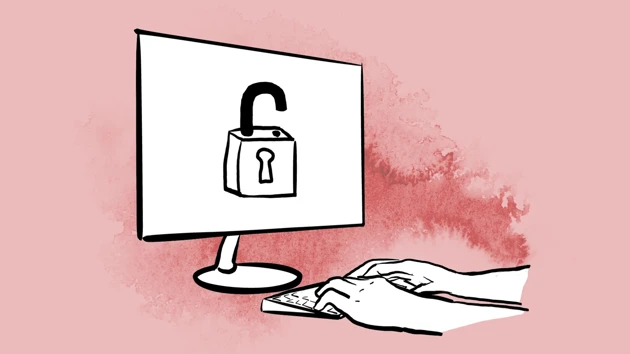Use the brochure for research collaborations
Share the brochure Research collaboration with Umeå University with your collaboration partner so they understand the legal requirements for collaborations.
If you want to share research data with someone who is not employed by a Swedish authority, such as collaboration partners outside Sweden or companies or a non-profit organisation in Sweden, that person is not covered by the same statutory professional secrecy as you are as an employee of a public authority. You must therefore decide whether the sharing can be done with the support of confidentiality clauses or whether the data can be anonymised or shared at an aggregate level.
Confidentiality clauses
If the recipient is located in Sweden, research data covered by secrecy can in some cases be shared with the support of confidentiality clauses according to Chapter 10, Section 14 of the Public Access to Information and Secrecy Act (OSL) to protect the information classified as secret. Sharing research data with confidentiality clauses means that the recipient’s right to determine the use of the data is restricted. The University can, for example, prevent the recipient from disclosing the data or using the information in other contexts than the research project. You may not use confidentiality clauses to allow disclosure of information classified as secret to collaborators outside of Sweden.
Checklist for sharing data with companies and organisations in Sweden
Before sharing research data with your collaborators, you must:
- check to see if Umeå University is receiving the data from another Swedish authority or public organisation and determine whether the disclosing authority has transferred data secrecy to Umeå University;
- conduct a secrecy examination;
- investigate whether information classified as secret can be shared subject to confidentiality clauses; and
- determine whether agreements on sharing of research data need to be signed.
If the research data contain personal data, you will also need to:
- assess which personal data are necessary to share; and
- contact the university-wide research data support team if the parties in the research project have joint personal data responsibility that needs to be documented.
Document the considerations made when sharing data, for example, in the research project’s data management plan.
Secrecy examinations
The Public Access to Information and Secrecy Act does not cover other parties, such as companies and non-profit organisations. Research data are thus not protected by statutory secrecy among these organisations. This means the basic assumption is that you cannot share research data classified as secret with such a party.
To protect the information classified as secret, in some cases, you can share research data with information classified as secret as per Chapter 10, Section 14 of the Public Access to Information and Secrecy Act. Confidentiality clauses can only be used if the University judges that the risk of damage is eliminated when sharing research data.
Even when sharing with an organisation, the confidentiality clause is to be addressed to individuals since the clause means that the person is covered by a statutory professional secrecy with specific penalties. Other persons in the recipient organisation may not have access to the information that is classified as secret.
Confidentiality clauses are to be formulated as a decision and not as an agreement. Contact the research data support team for help in assessing whether sharing with a confidentiality clause is possible and for help in formulating the decision about a confidentiality clause. The person responsible for the research data then decides on the confidentiality clause.
Read more on the pages for secrecy for research data
Agreements regulating sharing of research data
The secrecy examination can include agreements that regulate confidentiality for research data and how data may be used. This type of agreement should stipulate:
- that research data may not be used for any other purpose than for the current project; and
- what the collaborator is to do with the research data after the end of the project.
Read more about sharing information classified as secret
Read more about collaboration agreements
Do you have questions about research data?
The University has a cross-functional support team for research data management, which includes areas such as archiving, legal affairs, IT support, open data, and information security. You can contact the research data support team through the following form:


